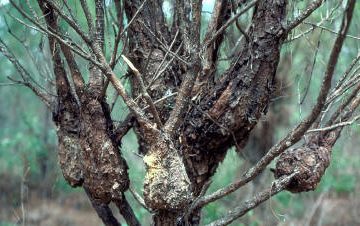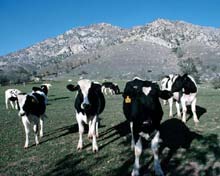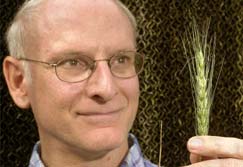
The use of antibiotics in animal feeds may soon be banned in the European Union. Despite positive effects on pig health and growth, there are growing concerns about bacterial resistance to antibiotics. This includes the risk of cross-resistance, with bacteria developing resistance to antibiotics used in human medicine.
In response to these concerns EUREKA project ANTIBIOTICS IN FEED has developed safe and healthy piglet feeds which are free from antibiotics. Crucially the new feeds can be qu

New agricultural crops stand a better chance of helping to fill the world’s bread baskets, says a University of Maine economist, if plant breeders take farmers’ needs into account early in the crop development process. A new research report by Timothy J. Dalton, assistant professor in the Dept. of Resource Economics and Policy, is one of the first to demonstrate farmers’ preferences using a quantitative approach.
Dalton’s research could help agricultural research organiz

USDA Forest Service researchers at the Southern Institute of Forest Genetics (SIFG) in Saucier, MS are mapping genes in the pathogen that causes fusiform rust to provide future forest managers with more insurance against the damaging disease.
Fusiform rust, a fungus that forms spindle-shaped galls on the branches and stems of pine trees, is endemic to the southern U.S., occurring from Maryland to Florida and west to Texas and southern Arkansas. Attacking several southern pine species, the f

Over the last decade the market has had a tendency to value food products that are healthy and safe and encourage healthy lifestyles, with the added parameter that their associated production processes are environmentally sound. In the case of systems of cattle production the current and future aim is the obtaining of a quality product within an environmentally and economically sustainable framework.
Both objectives ultimately depend on animal feeding. The composition of the diet can have r

Bread wheat plants carrying a newly discovered gene that is resistant to economically devastating leaf blotch can reduce the amount of grain lost to the pathogen, according to Purdue University researchers.
The scientists used bread wheat species to find the gene and the markers, or bits of DNA, that indicate presence of the naturally occurring gene. The fungus causes wheat crop damage worldwide with yield losses of 50 percent or more in some places. In the United States the disease is wide

The first attempt in the Russian Federation to utilize contemporary information technologies for efficient farm production management has been made. The decision-making support system for agricultural enterprises is being tested at a private agricultural farm in the Orenburg Province.
Information technologies, which formerly served solely space industry, can be employed to make agriculture more efficient. That has been done by the specialists of the GEOMIR Engineering Center in collaboratio